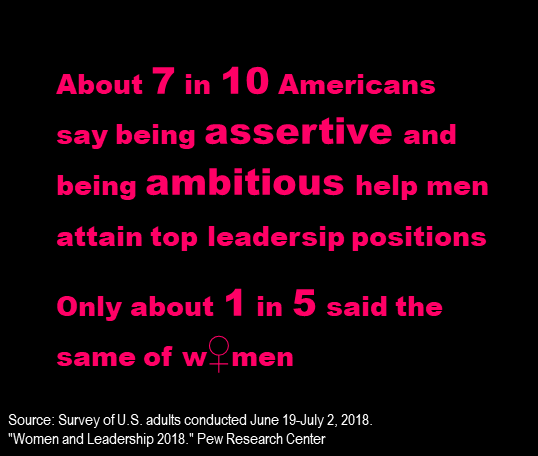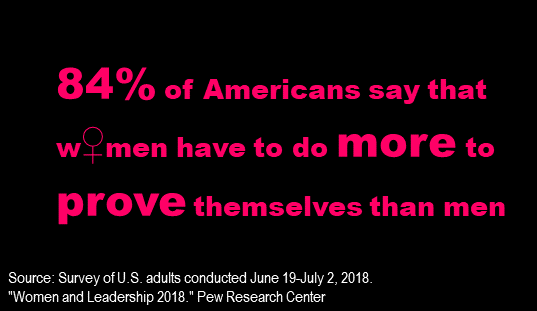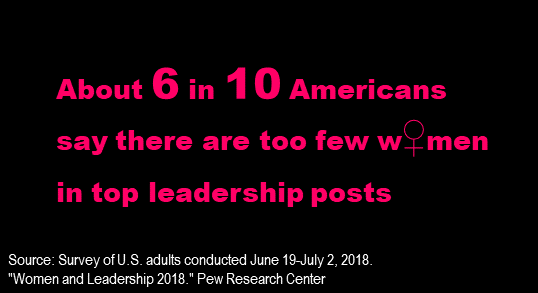Leading In: Women’s Views From the C-Suite

A conversation with CEOs Judy Vredenburgh, Cathy Tisdale, and Susan Danish about their personal relationships to power, their leadership journeys, and what they see for the future of female leadership in the nonprofit sector.
Gender and Power
The past year has been a potent one for women. For every gain and breakthrough there are reminders of lingering inequities. Although we like to think that the nonprofit sector—with its focus on social good—has a better track record in equity and women’s rights the facts show we don’t do any better.
To reflect on the experience of women who are nonprofit leaders, I had a candid conversation late last fall with three of the sector’s top female CEOs: Judy Vredenburgh, President and CEO of Girls Inc.; Cathy Tisdale, President and CEO of Camp Fire; and Susan Danish, CEO/Executive Director of Association of Junior Leagues International (AJLI).
We talked about their individual experiences of leadership, organizational development, and making change in today’s troubled social and political climate. I’m delighted to share the first of these two captures from that afternoon, below.
Leading In: A Conversation with Girls Inc.’s Judy Vredenburgh, Camp Fire’s Cathy Tisdale, and Junior League’s Susan Danish
At the time of this interview, there were more women running for public office than ever before. Since then, we saw 36 women newly elected to Congress, and many more win state and local races. At the same time, women are still underrepresented in seats of political power. Likewise, female leaders still head only 25 Fortune 500 companies and a very small percentage of nonprofits with budgets more than $50 million (where their male counterparts, incidentally, still make 21% higher salaries). In the midst of the #MeToo movement and in the still-turbulent wake of the Kavanaugh confirmation hearing, we hear women’s voices speaking truth to power. Yet we are also reminded that women’s power is not monolithic, and that racial and generational differences abound. (If you haven’t already read our Black & Bold interview series, do so. Now. It’s okay, we’ll wait…ready? Here we go.)
Research doesn’t find a lot of gender-related differences in how we lead, but the one thing they do find is collaboration—that women tend to be more relational. Does that ring true for you? Do women wield power differently?
Judy: I like being the boss better than being a subordinate. Women and girls have a hard time asserting their power, their voice. I got over it decades ago. I learned that power is neutral. Power can be leveraged for a lot of good. It’s not necessarily a bad thing for women to exert power. I’m not motivated by fame, or money, but I like power to achieve goals.
Cathy: (laughing) If we didn’t all like it, we wouldn’t be where we are! Someone I often talk to about leadership issues said to me, “Who do you want to be today? Do you want to be liked, or do you want to be respected?” He didn’t let me say “both.” Because the truth is, when you want to be respected you make one kind of decision, and when you want to be liked you make another.
Judy: That’s a gender issue. I had big problems with that!
Cathy: Men don’t have any trouble saying, “I’m making this decision and I hope you’ll still respect me, even if you don’t agree with me.” Women are generally so relational by default that when we have to stand up there and say it…sometimes it’s fine, but sometimes you go home and just feel icky.
Judy: It’s about how adaptive and flexible women are. It relates to being collaborative, where we don’t have to “own” the idea because of ego. I think it’s a tremendous strategic advantage to be adaptive and flexible and open to adjusting and changing course. We have to be, things change too fast! You may have a plan (certainly a goal and a purpose), but the specifics of how you get there sometimes have to change. I think it’s a competitive edge many of us bring to the work.
A recent Pew research article looking at what women are better at as leaders said the only thing we weren’t ranked high on was “negotiating deals.”
Judy: Women are worried about being impolite.
Susan: I was negotiating a lease for a new AJLI headquarters, and I was mad because the owner of building was being condescending and thought I wasn’t tough, so I said I was walking out—and did. The broker chased me down the hall. Well, I got what I wanted!
Judy: Once, when my boss got promoted, I was passed over for his open position. They hired a guy. They thought I wouldn’t raise a fuss…that I was “stable” because I was married and had a family. The guy they brought in… I just couldn’t work for him, he wanted control. So I negotiated myself into his old areas of work… I said to myself: I’m going to show I can do better than he did, then when I get the results I’m going to go into the job market. After I got a new job with the right title and right salary is when they started aggressively courting me back. But I was emotionally detached by that time. After I left, they did promote a woman because they didn’t want to lose her. That was in the 80s. So we all have our war stories of what it took. You constantly had to battle, prove yourself over and over.
Girls Inc. has launched its #GirlsToo campaign to raise awareness of girls’ experiences and voices in the movement against sexual harassment and assault. How does this moment in time make your organizations’ respective women-centered missions more important, and perhaps at the same time more difficult?
Cathy: When we first shared the post, it generated interesting things for our team. We’ve worked so hard to not be known as “Camp Fire Girls” anymore, so folks were worried we’d undo that…though they also agreed that’s not the most important thing to worry about and what women and girls are dealing with right now is more important. One of our younger marketing staff asked if we should use this as an opportunity to highlight that sexual assault is experienced by boys, too. We decided that we’d have message points to respond to the question “What about the boys?” but we wouldn’t mess with the primary message for a while. When the time is right, it’ll be about kids and families. This campaign is not only powerful and more than timely—it provokes thought for people.
Having seen the workplace for women change over the past many years, what makes you optimistic…and what still needs to be pushed ahead?
Susan: I’m not really enthusiastic. The data doesn’t really show movement, but that women are still seen as exceptions and not as accepted.
Judy: I feel like we’ve had change. At least at the entry levels, women and men are getting paid the same. The blockage happens at the mid and upper levels. More women are getting through now than in our generation. Still, we’re not where I’d like us to be.
Young people are giving me hope. They’re taking the lead in gun control, #MeToo, becoming activists. Young men are behaving differently to women. That gives me hope. When I see highly-educated young people, I see their relationships being more equal than our generation, when men weren’t as comfortable with women in equal power or making more money. I think it’s this way among a highly-educated, elite group. I know there are socioeconomic differences. We have this issue of privilege. There are at least two Americas. There’s privilege and white privilege, and that’s a big issue. But I feel that young people…when it comes to any kind of diversity (racial, gender, sexual orientation)…seem so much more open. Older generations still feel very blocked.
Susan: Young women also have to be encouraged not to opt out. It’s a hard thing to decide to work full-time for a long…well, forever. I couldn’t imagine another path for me. I’m a power monger (and have been since I was 6!). I can’t imagine not having the intellectually-stimulating life I have now.
Judy: A lot of young men and women are asking, “Is it worth selling out the other parts of my life?” the ability to smell the roses.…
Susan: Part of the problem is that women don’t know other women’s stories. There are a lot of accomplished women out there—who aren’t the Carly Fiorinas and Sheryl Sandbergs. There are so few opportunities to hear about their paths and their stories and the things they’ve done.
The National Women’s History Museum ran a salon in New York and there was a dinner afterward for the host committee, so there were about twelve of us. We went around the table and talked about ourselves. The most fascinating things emerged about these women. What a waste that their stories aren’t known!
Cathy: Our marketing director is a millennial. She’ll hear me say how things used to be, like in the mid-80s when they’d hired only the 2nd woman ever to lead a major Red Cross chapter. She was stunned. Maybe our generation was the same, to be so surprised at how far we’d come.
Watch for Part 2 of this interview in next week’s blog.

Comment section